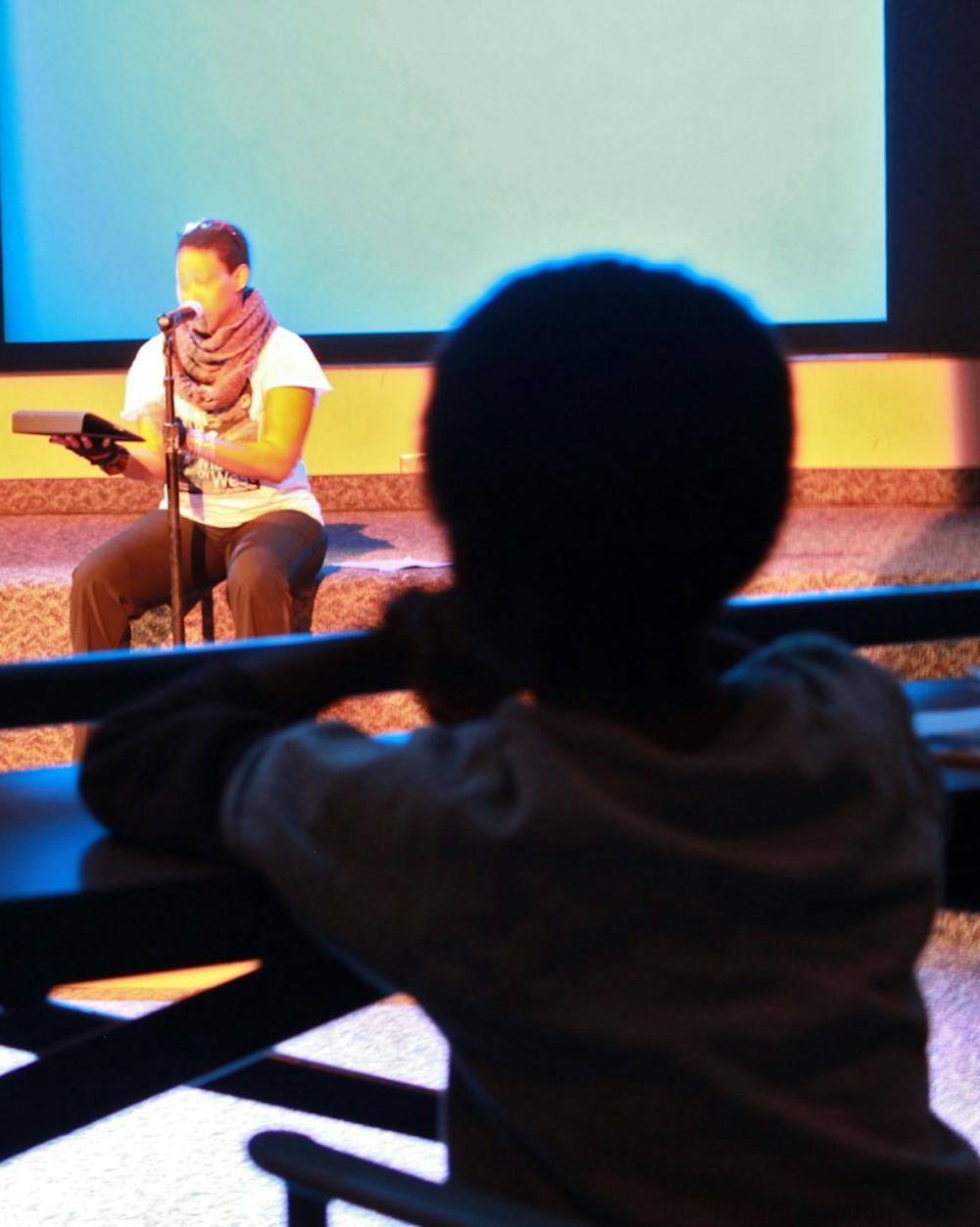“It took a whole lot of Martin Luther Kings to accomplish what we accomplished in the '60s,” echoes a deep, booming voice throughout ASU West’s Kiva Hall. “It took all of that, all of us coming together and defending what is rightfully ours, the right to be who we are.”
The voice that commanded respect and moved the attendees of ASU West’s MLK Poetry Jam on Jan. 21 was that of 63-year-old local musician Seal Primos. He began the night with a personal history of the civil rights movement, followed by a plea for youth in the audience to continue the cause.
“You gotta give up something to change,” he says. “You gotta get out of your comfort zone; you gotta start speaking up; you gotta know who you are.”
The poetry jam was more accurately a hodgepodge of artistic expression than any kind of lecture, and concluded the campus’ weeklong remembrance of Dr. Martin Luther King, Jr.
Young and old, families and students showed up to see poets, musicians and other artists pay homage to the central figure of the civil rights movement and stand together in unity.
Charles St. Clair, a professor of interdisciplinary arts and performances, began the weeklong celebration of events 20 years ago and the open mic night one year later. Every year, the poetry jam changes; this year, students from the Black Graduate Student Association ran the event.
Poet, dancer, singer and vice president of the Black Graduate Student Association Marchlarina Davis explains that the message of the night was living MLK’s dream and making it a reality.
Her poem, “We the People,” was a highlight of the night, addressing her own personal experiences as an African American woman working with the Boy’s and Girl’s Club of America. She was a pioneer for artistic youth in Phoenix when she began writing 14 years ago.
“I kind of started with the poetry for our generation,” she explains.
Besides oral histories and poems, the audience was treated to the sounds of local musicians, including jazz group Elevated Unda’ Ground. Breaking in throughout the night were also dancers and open-mic performers, illuminating the cause of unity and acceptance in their own way.
Samantha Diaz, a 21-year-old accepted to ASU for Fall 2011 decided to check out the event because of her passion for writing and poetry, but the future student took more away from the jam than she anticipated.
“I didn’t know [about] all that information that was kind of hidden off of the dream speech,” she explains. “That certain bits and pieces of his speech relate to events happening today.”
Despite her recognition of the night’s significance, Diaz was disappointed with some of the underlying political tones that certain performers took.
“To me, it was about that there is more racism in today’s day and age, and I don’t think that brings us together,” she says. “I don’t think that’s what Martin Luther King, I guess, would have wanted.”
Ultimately, some artists did take the political route with their messages. One man spoke in prose about the controversy surrounding affirmative action while another explored the big talk and no walk of President Obama's election.
Emphasized all throughout the night, however, were freedom of speech and a sense of responsibility to inspire others to speak. Not every act conveyed distinct demand for action — some, rather, aimed to inspire. The night ended with a beautiful modern performance dance choreographed by ASU alumna LaShonda Williams.
The piece was based off of Nina Simone’s song “Four Women,” highlighting the stereotypes surrounding dark-skinned women in societal history, from slavery to modern day.
St. Clair commended the political and artistic expression conveyed, and stressed tolerance as the key theme to take away from the entire week.
“The events in Tucson over the last couple of weeks have proved that... Arizona is not immune to the lack of tolerance among people,” he explains. “The divide grows greater every day in many ways between us culturally. Events like this are to help us bridge that gap.”
Reach the reporter at ndgilber@asu.edu






